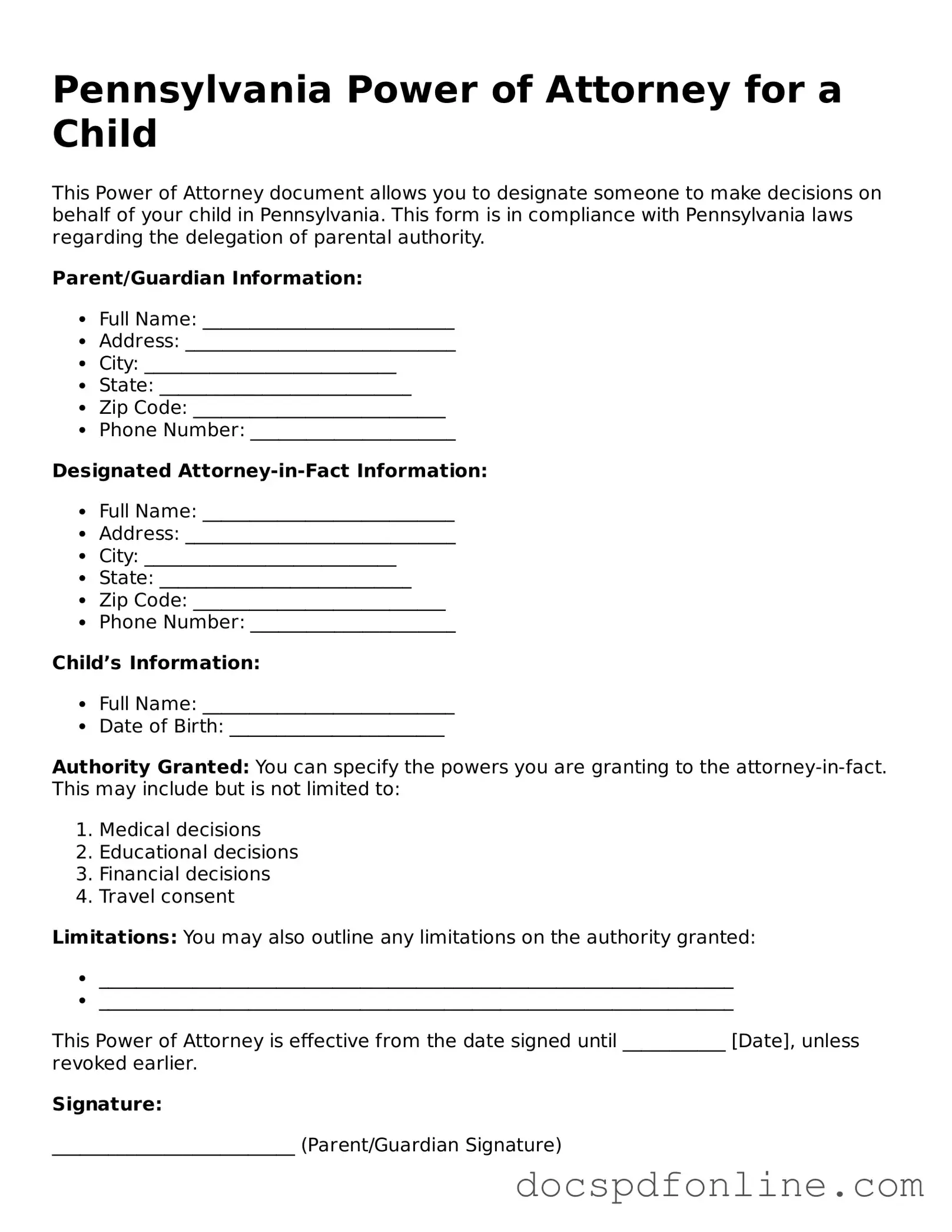Legal Power of Attorney for a Child Template for Pennsylvania
The Pennsylvania Power of Attorney for a Child form is a legal document that allows a parent or guardian to grant temporary authority to another adult to make decisions on behalf of their child. This can include matters related to education, healthcare, and general welfare. Understanding how to properly utilize this form can help ensure that your child's needs are met when you are unable to be present.
Launch Editor Now

Legal Power of Attorney for a Child Template for Pennsylvania
Launch Editor Now
Save time — finish this form fast
Finish Power of Attorney for a Child online — edit, save, download made easy.
Launch Editor Now
or
↓ PDF File
